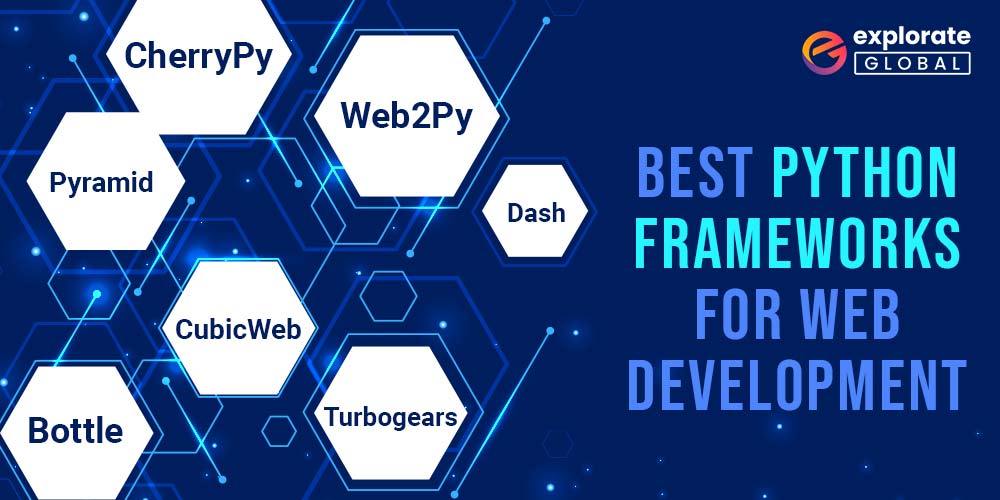
Looking for the best Python frameworks to use? Then you have landed at the right place.
Technology is evolving daily, leading to continuous advancements in Smartphones, Artificial Intelligence, Computers, etc. Then, to take advantage of these technologies, we created a number of programs and mobile applications. Python is one of many such extensively utilized and well-liked programming languages.
As more and more individuals began learning Python frameworks for Web Development and Machine Learning in recent years, its popularity has skyrocketed. The framework and tools offered by Python, which makes everything simple, were one of the key causes for such a tremendous increase in popularity.
The implementation of numerous capabilities, such as validation, authorization, database connectivity, CRUD, processing payments, etc., was never simple in web development. Nevertheless, some best frameworks for Python actually make it simple to develop web apps quickly.
You have come to the right place if you are utilizing Python frameworks for data science and web development but aren’t sure which Python web framework to use. In light of that, here is a top 10 Python frameworks list for web development.
10 Best Python Frameworks List For Web Development In 2023
The top Python web development frameworks for developers are listed below. In addition, you can choose the extension you wish to develop your web application with from the Python frameworks list of full-stack frameworks and micro frameworks.
1. Django
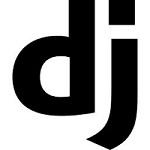
A full-stack Python front-end framework that is free, open-source, and available online is called Django. Django allows you to build a web application from scratch. The main characteristic of Django web development with Python is that it aims to give all required functionalities by default rather than providing them as independent libraries.
It was initially intended to be an engine that aids website developers in creating content-based websites (such as news sites). Even so, since it was released, programmers have utilized it to power several applications and services.
Django web development with Python is particularly appealing to newcomers just starting in web development since it allows you to quickly build complex apps with little to no experience with low-level features like relational database systems or web servers.
Features of Django
- Helps you define URL patterns for your application.
- Integrated authentication system
- An easy-to-use but efficient URL structure.
- A database is written in an object-oriented language, providing the finest data recovery and storage.
- The admin interface can alter how objects are edited, added, and deleted.
- A caching framework can accommodate many cache techniques.
2. Pyramid

Pyramid is advanced and packed with features Python web framework. Additionally, it may be used for a variety of things, such as web APIs, websites, and anywhere else you might want to use a well-known programming language like Python. Pyramid is also renowned for its extensibility, testability, and flexible, modular architecture.
One of Python’s greatest strengths as a development language is its supportive user base, which is shown here in user participation on IRC channels, mailing lists, Stack Overflow, and other forums.
Many alternative best frameworks for Python compete with Pyramid or complement it, but many top technology companies show that they are reliable options. Additionally, many Python development firms advise Pyramid for web development.
Features of the Pyramid
- It enables you to run on both small and relatively big apps effectively.
- Validating and producing HTML structures
- Comprehensive templating and asset information
- Extensive data documentation, testing, and support
- Flexible authorization and authentication
Also read: Top 5 Python Online Compilers for Python Developers
3. Flask

As one of the most widely used and best frameworks for Python, Flask continues to be one of the language’s most rapidly expanding tools. Flask is easy to deploy, has a big add-on library, and is simple to learn and effective to use. Because of how easy this Python automation framework is to stand up and run with little effort, it is popular.
However, it is a scalable Python web framework, which helps build websites more swiftly. Despite not having the same structure level as Pyramid or Django, it nevertheless provides the ideal settings for creating useful applications. Furthermore, thanks to its thorough documentation and vibrant community support, you can totally rely on Flask.
Features of Flask
- Development server with integrated debugger.
- Request distribution over a RESTful API.
- Adequate integration of the testing phase (code with quality).
- Filters, Tags, macros, and other Jinja2 templating features are employed.
- Complete WSGI 1.0 compliance.
- Several extensions made available by the community make it easier to integrate new functionality.
4. CherryPy

CherryPy is a top-notch Python database framework that can serve as the foundation for a number of different online applications. It is also made to be easy to understand and use. As a result, it is one of the most accessible Python automation frameworks on our list due to its emphasis on simplicity and usefulness.
CherryPy might be ideal for you if you’re an inexperienced developer looking to try something new. While more experienced developers may find its features lacking, it gives novices a chance to become accustomed to using Python before moving on to more complex frameworks.
CherryPy’s ability to run users’ programs independently of other individuals or services is a major selling advantage. If you wanted to, you could solely launch an application utilizing CherryPy’s internal parts.
Features of CherryPy
- A consistent, HTTP/1.1 compliant WSGI thread-pooled webserver.
- Running numerous HTTP servers simultaneously is easy (for instance, on different ports).
- Supported Python versions include PyPy, 2.7, Jython, 3.5, and Android.
- • There are numerous features built-in, including sessions, cross-site scripting, static content, caching, authentication, and more.
- An effective configuration system for both deployers and developers
- Support for testing, coverage, and profiling built-in
Also read: A Complete Guide to Python App Development
5. Bottle
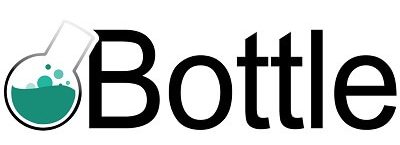
Bottle is a quick, easy, and compact Python WSGI microweb framework. It simply requires the Standard Library of Python and is delivered as a single file module. In addition, Flask and Bottle have features in common that make moving between frameworks simple.
This Python database framework may be utilized right out of the box with little to no web programming experience if you wish to add a few quick prototyping capabilities quickly or simply develop a landing webpage. On the other hand, Flask’s features might work better for complex web apps. However, if you prioritize simplicity and code readability, Bottle is still one of the best frameworks for Python to take into account.
Features of Bottle
- Create a clean, dynamic URL route for mapping using a syntax that has been simplified.
- An efficient Pythonic built-in template engine and backend.
- The WSGI framework is CGI compatible, and comprehending WSGI internals is easy.
- Enables rapid access to cookies, data, file uploads, and other HTTP-related metadata.
- Served as a multi-threaded web server and backend for WSGI-compatible HTTP servers such as glue, fapws3, and flup.
- Enhancements to performance and testing speed
6. WebPy
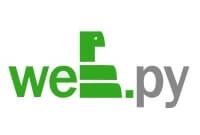
Python was created to be an easy-to-read language, making it especially well-suited for online development. This is why WebPy has been a popular Python framework in recent years. In addition, Python can handle websites more quickly than other programming languages due to its simplicity and tiny size.
Therefore, WebPy is one of the best frameworks for Python, whether you’re a designer wishing to include a dynamic component in your site or want to build an interesting new website from scratch utilizing Python code.
In addition, WebPy is well-maintained and has a robust developer community that is always willing to assist. Therefore, there is a strong probability that someone on the WebPy forums will have the solution you need if you run into trouble.
Features of Web2py
- Facilitates rapid web development and supports configuration agreements.
- It supports the MVC structural design to streamline web building.
- Allows web developers to use NoSQL and relational databases.
- With this IDE which is web-based, you can complete tasks like clearing up temporary files, running tests, modifying app files, and browsing older tickets more quickly.
- It includes Useful Batteries, which let you rapidly create a range of web applications without using tools or services from outside sources.
- Keeping web applications secure by resolving the most prevalent security flaws and vulnerabilities.
7. TurboGears

TurboGears is one that crosses the line between being a complete Python framework and an add-on library. Additionally, one of its main selling features is its structure, which enables scalability and easy maintenance.
TurboGears can speed up your Python framework programming and website by enhancing performance and productivity. Even though the TurboGears documentation can be a little challenging to traverse, it goes together with comprehensive documentation for API and offers developers a useful sample application.
Additionally, since TurboGears is a completely scalable Python web framework, you may use it for practically anything. This makes it a desirable choice for bigger projects that need greater flexibility.
Features of TurboGears
- Each feature is put into practice as a function decorator.
- Support for many databases.
- Easily available command-line tools.
- The JavaScript library MochiKit’s incorporation.
- Templates are written in PasteScript with MVC architecture.
- Coordinating frontend design and server deployment are made simpler using ToscaWidgets.
Also read: Top 5 JavaScript Frameworks For Front-End Development
8. Dash
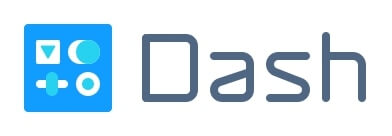
Dash is one of the most well-known Python micro frameworks, hosting numerous web applications and handling millions of daily requests. Since it began to be developed in 2014, Dash has placed a strong emphasis on ease and manages a variety of typical web development tasks, including sessions, cookies, URL routing, templating, and more.
The pre-written applications that come with Dash make it quite easy for web developers to get started. Furthermore, since Dash is intended to be modular, therefore, you may select the components you require during setup and exclude the ones that you do not want.
Features of Dash
- To get started, Dash apps require very minimal boilerplate code.
- Management of errors (Dash Deployment Server).
- Extensive customization.
- LDAP integration (Dash Deployment Server).
- URL routing (Dash Deployment Server).
- Plugin assistance.
- A user-friendly interface for UI controls, such as dropdown menus, graphs, and sliders.
9. Falcon
Falcon was designed to create web APIs like configuration files. Developers can create pure design applications using Falcon to enhance and utilize the ones that already support HTTP servers. Falcon has an accurate and effective response for HTTP problems, threats, or vulnerabilities, in contrast to other Python backend frameworks that require a lot of dependencies when creating HTTP APIs.
Compared to its rivals, Falcon can handle the majority of requests using similar hardware. Major businesses use Falcon, like OpenStack, LinkedIn, and RackSpace, for their systems.
Features of Falcon
- A base of highly efficient, expandable code.
- Using WSGI helpers and mocks for unit testing.
- Handling exceptions up front.
- REST influences resource classes.
- Enhanced speed with Cython support.
- Hooks and middleware components.
- Request processing in the DRY.
- Simple navigation is provided through URL templates.
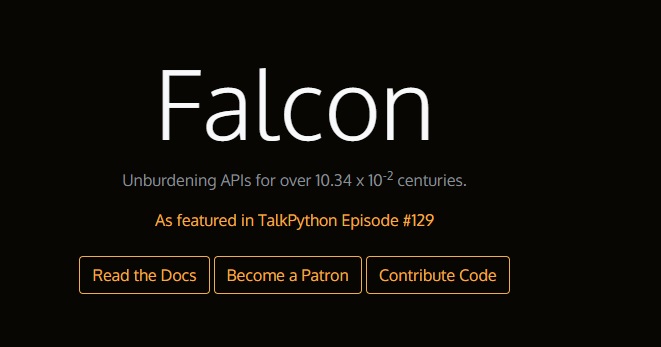
10. Tornado
The Tornado is an asynchronous networking library and open-source Python framework. The asynchronous framework makes use of a non-blocking network I/O in addition to addressing the C10k problem (which simply refers to managing 10k connections at once).
The Python framework was initially created for a business called FriendFeed, which Facebook bought in 2009. The Tornado is the best tool for developing apps that need high performance and a large number of concurrent users.
Feature of Tornado
- enables the use of third-party authentication and authorization systems.
- Real-time services
- Offers high-quality output
- support for localization and translation
- support for user authentication
- Web templating.
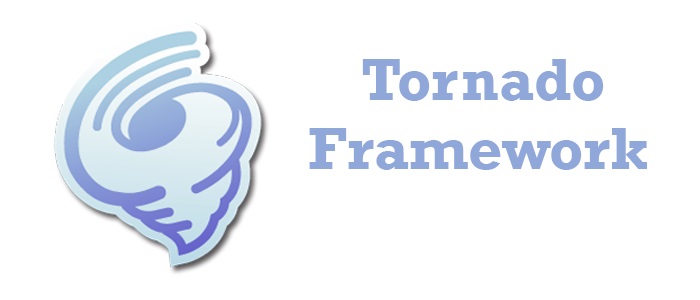
Conclusion
Python has grown in popularity among web developers over time. However, many developers are creating their own Python frameworks to assist in problem-solving while creating applications because it is an open-source programming language that any programmer may alter and use it for free.
According to estimates, over 260 best frameworks for Python are currently on the market. These are the Python frameworks that, in our opinion, will be among the best in the market by 2023 in order to keep up with all of these new technologies.
Related:


